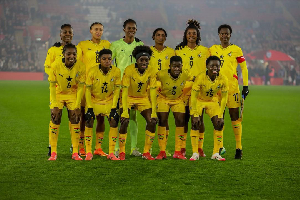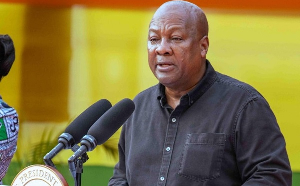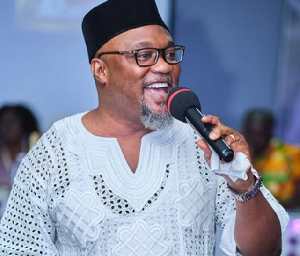Mvemba Phezo
On March 6, Ghana celebrates the 52nd anniversary of its independence from British rule. For a country of over 100 linguistic and ethnic groups, half a century of political sovereignty and national unity is remarkable. Most impressive, however, is the country's transformation over this time period. For as Ghana goes, so does much of Africa.
Ever the pioneer, Ghana was the first sub-Saharan African country to gain freedom from a colonial power in 1957 under Osagyefo Kwame Nkrumah's visionary leadership. Ghana thus emerged as the rising star of the independence movement. Nkrumah became a torchbearer of Pan-Africanism and the non-aligned countries, raising hope for millions of subjugated Africans--from Senegal to Congo to Kenya to South Africa.
Article Controls email
print
reprint
newsletter
comments
share
del.icio.us
Digg It!
yahoo
Facebook
rss
Yahoo! Buzz"We face neither East nor West," Nkrumah once said. "We face forward." In essence, he captured Africans' dream of self-determination. Within five years of Ghana's independence, most sub-Saharan colonies would become independent countries. Nevertheless, the promise dissipated quickly when the military overthrew Nkrumah in 1966 and Ghana embarked on the muddy and bloody path of coups d'état and a long line of dictatorships.
As it was with Ghana, the fall of Nkrumah ushered in a new era of coups d'état in the newly independent African countries. The Cold War and the thirst and proclivity for power among military officers in these countries would make dictatorship the most prevalent form of governance and strangle Africa's socioeconomic development.
For nearly three decades Ghana would dredge its way through the swamps of dictatorship until strongman Jerry Rawlings eventually embraced the multiparty system. In the early 1990s, a wave of democratization swept across the continent, shaking oppressive regimes and causing upheaval in its wake.
An astute politician, Rawlings correctly read the signs of change and adjusted his course. With the 1992 presidential election, which he won, Ghana embarked yet again on a new path and became one of the first countries to adopt democracy as a governance model in the post-Cold War world--alongside Benin, Mali, Mozambique and Cape Verde.
When Rawlings stepped down in 2000 after the two four-year terms allowed under the constitution, Ghana reclaimed its democratic roots. Having staged two successful coups, and after two decades in power, Rawlings was one of a handful of dictators who managed to put their fellow citizens' interests above their own and left power before the damage was irreversible for the country.
The Ghanaian elite's commitment to constructive change is most edifying. In 2000, the National Democratic Congress (NDC), Rawlings' party, lost the presidency to John Kufuor's New Patriotic Party (NPP). On Jan. 7, 2009, NDC's John Atta Mills replaced Kufuor as president. With this peaceful, democratic transfer of power between well-established competing parties, Ghana has achieved an elusive, but critical, element of governance--alternation of power.
For democracy and elections to be credible, the electorate needs to see power shift between different parties over time. Alternation of power in and of itself does not mean democracy has taken root. The lack thereof, however, signals serious trouble, as recent developments in Kenya, Zimbabwe, Congo and Nigeria attest.
Ghana has benefited from this shift of power in several ways. Change of leadership builds confidence among the citizenry and gives Ghanaians a sense of direction, purpose and progress. Greater civic engagement on the part of the political elite has created a stable environment, which has allowed thousands of Ghanaians in the diaspora to return home. Putting their knowledge and skills in the service of their country, these Ghanaians help reverse the brain drain that has denied Ghana the full benefit of human capital, its most important resource.
Like many countries, Ghana faces great challenges, including a rent economy, poverty, corruption and high unemployment and illiteracy rates. These challenges notwithstanding, the country has emerged as a regional leader, the result of aggressive open market reforms that yielded a 6.3% real gross domestic product rate in 2008. Such reforms are feasible and sustainable thanks to the elite's commitment to change.
Consequently, Ghana has become an attractive market for foreign investment. In 2006, Ghana signed a $547 million compact with the United States Millennium Challenge Corporation to boost its economy. Both Presidents Bill Clinton and George W. Bush visited Ghana, lending their support to this African democracy.
Facing their past without any illusion, Ghanaians contemplate the future with a level of confidence that only derives from a democratic process. While the world fears the onslaught of the global financial crisis, Ghana stands as a beacon of hope and a source of pride in Africa.
Mvemba Phezo Dizolele is a W. Glenn Campbell and Rita Ricardo-Campbell national fellow at Stanford University's Hoover Institution.
General News of Friday, 6 March 2009
Source: Mvemba Phezo Dizolele












